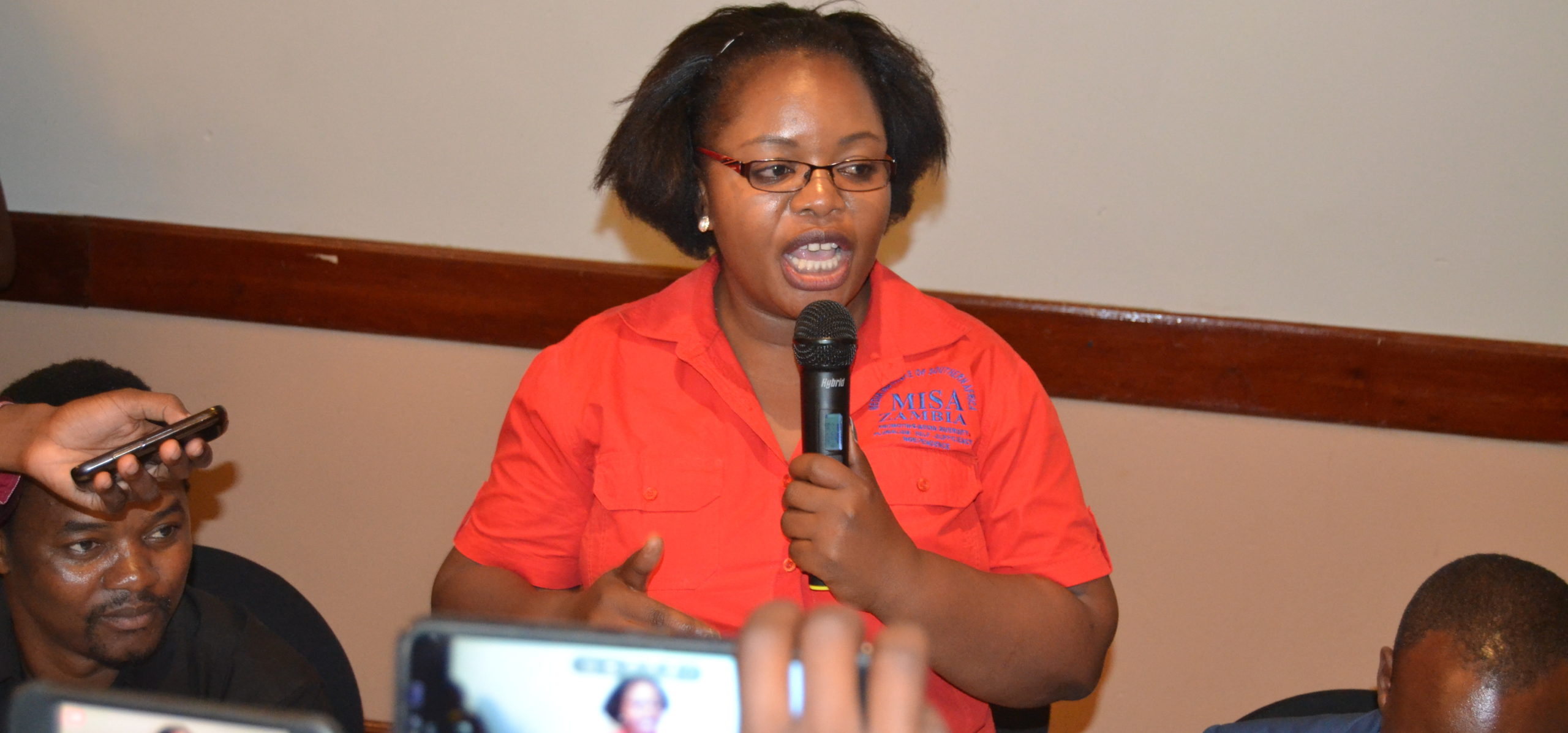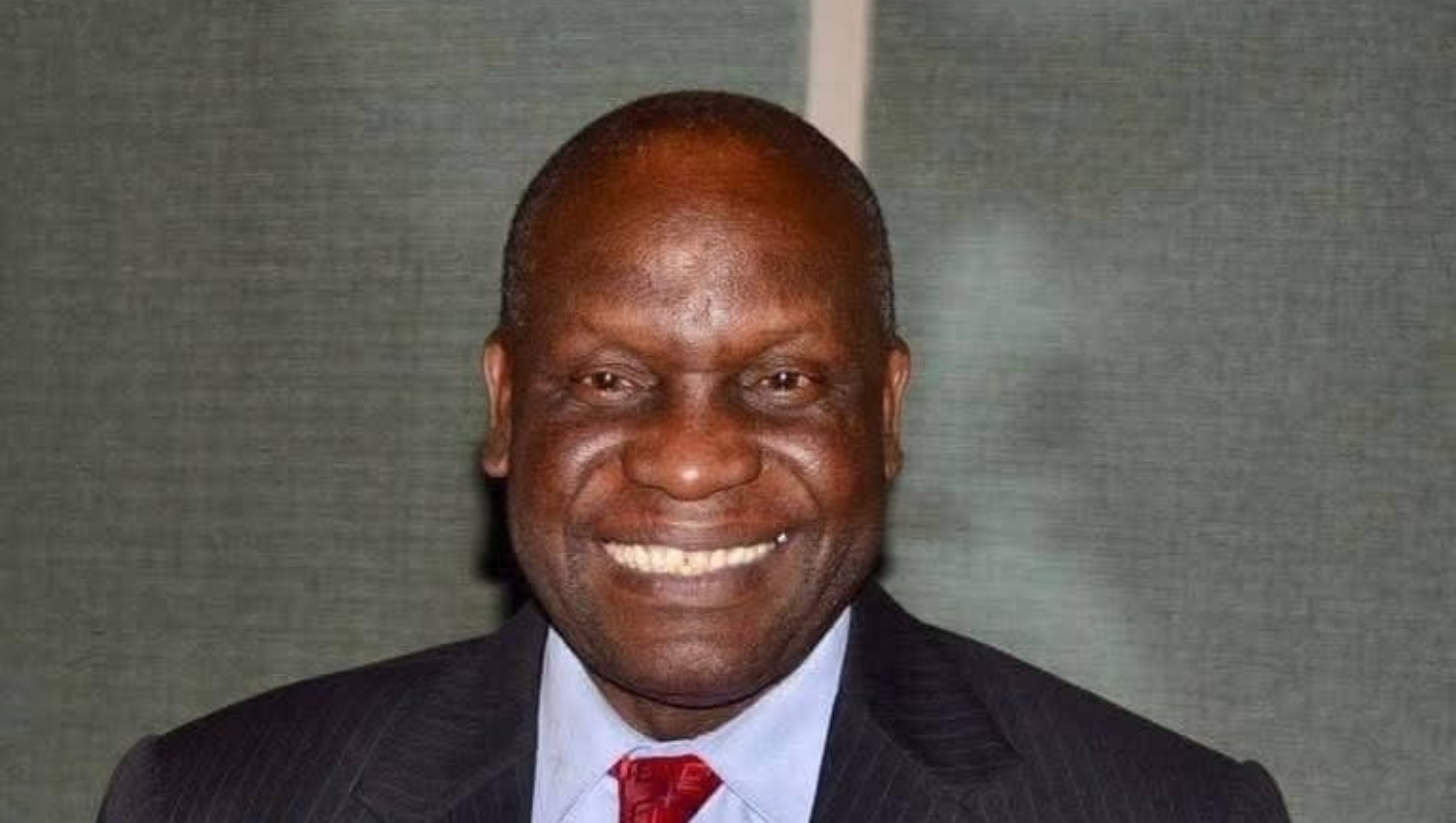Remarks by MISA Zambia Chairperson, Hellen Mwale at the occasion to launch ‘State of the Media: First Quarter 2018’, held at Protea Hotel, Lusaka, Zambia
The resident director, fes, Mr. Helmut Elischer
MISA Zambia governors present
National director MISA Zambia, Mr. Austin Kayanda
The diplomatic corp present
Government representatives present
Representatives of civil society organisations present
Colleagues in the media
Distinguished guests
Ladies and gentlemen
Good morning!
It is an honour and privilege to welcome all of you to the state of the media in Zambia launch report of the 1st quarter of 2018. Allow me to express my appreciation to all here present for having made a special effort to attend.
The state of the media in Zambia is a quarterly report based on the assessment of events touching on the environment under which the media operated during the period under review.
It is my view that various stakeholders, including duty bearers and rights holders, will take keen interest in reading this report and work towards improving and fostering media freedom and independency in Zambia.
The fact that the media in Zambia is facing serious challenges as reflected in their polarisation and outright failure to provide objective and fair coverage to various stakeholders in the public domain. This is not healthy for the promotion and protection of human rights and freedoms, particularly the right to freedom of expression, access to information and the right to impart and receive information.
Ladies and gentlemen
Freedom of speech and expression underpins all other human rights and freedoms because individuals must be free to exercise their right to think, form an opinion, freely seek, receive and impart ideas and opinions, in order for them to effectively realise all their other human rights that are a prerequisite for their human dignity.
Indeed, freedom of the press and the individuals’ freedom of expression are indivisible and interdependent. The promotion and protection of media freedom enhances the wider freedom of speech and expression of individuals and the public. On the flip side, any attack or illegitimate restriction on media freedom inevitably impacts negatively on the general freedom of speech and expression of individuals. It follows then that issues of media freedom should be a concern of all citizens, not just the media fraternity or human rights defenders.
As the constitution of Zambia demands, the exercise and enjoyment of rights and freedoms is inseparable from the performance of duties and obligations. Media and press freedom come with special duties and responsibilities on the part of journalists, the fulfilment of which is equally critical for protection of media freedom.
Distinguished guests
The positive developments in the media landscape across the world are welcome. Some of those cited in the report are: the developments in technology leading to the unprecedented influence of the internet with the emergence of new media. There is also increased recognition and enhancement of the right to access information; the acknowledgement that cyber space requires regulation; and actions to enhance the safety of journalists.
However, the disruptive effects of these developments remain concerns that different stakeholders are monitoring closely. These include, to mention but a few, the diminishing space for journalism in its traditional sense; the abuse and misuse of social media as a source of false or unverified news; the tendency for some journalists to put profiteering above professionalism and its negative impact on neutrality and objectivity; the metamorphosis of some journalists into government spies; and the attacks on journalists.
MISA Zambia has severally spoken out against such violations of media freedom in Zambia particularly, during periods of heightened political tension such as elections, whereby journalists have been specifically targeted. The incidents have also been documented in the organisation’s various reports with recommendations for action.
Ladies and gentlemen
Among the major issues of concern highlighted by the report were the harassments, threats, and attacks leading to assaults by political party cadres. Ruling party cadres attacked private media mostly verbally while opposition political party cadres harassed reporters affiliated to the public media.
The report makes salient recommendations. However, unless such recommendations are taken seriously, the media fraternity will still be talking about the same challenges for many years to come. I therefore urge other civil society organisations to join hands with MISA Zambia to constructively engage the government in the quest to bring about a favourable legal, political and economic operating environment for the media industry where divergent, dissenting and critical opinions and views will be promoted and protected as necessary ingredients for the growth of a vibrant multi-party democracy and plural society.
It is our considered view as MISA Zambia that the enactment and implementation of laws such as access to information bill will contribute to transparency and accountability as citizens will be empowered to participate in matters of governance through access to accurate information. The government must therefore make good faith efforts and present the access to information bill to parliament as a matter of urgency and good governance.
Ladies and gentlemen
It is true that there is an increased abuse of cyberspace by some individuals. Every right and freedom carries with it a responsibility. There is need for responsible use of the internet for individual and societal benefit.
Having said that, abuse of the internet by unscrupulous individuals should not be used as a reason for clamping down on internet freedom. The benefits that accrue from promoting and protecting internet freedom by far outweigh the detriment caused by abuse of the internet. It is therefore important first to think about educating the citizens before regulating the cyber space.
Distinguished guests
Zambia should be planning to implement the united nations human rights council resolution passed in July, 2016 for the “promotion, protection and enjoyment of human rights on the internet if it has not yet started. The resolution also condemned any country that prevents and disrupts access, and called on states to refrain from and stop such acts as they infringe on the rights of citizens to access to information, privacy, freedom of expression and to hold and impart opinions without interference.
The human rights council in 2012 and 2014 affirmed that “the same rights that people have offline must also be protected online” particularly with regards to the freedom of expression already protected by articles 19 of the universal declaration of human rights and the international covenant on civil and political rights.
This launch therefore provides another opportunity for all of us to be reminded that a lot still needs to be done to ensure full respect of the freedom of expression. Some soul-searching is required not only to ensure improvement in observance of all the rights at stake but also to prevent retrogression on the aspects on which gains have already been registered.
Finally, i urge all media my fellow practitioners to re-commit ourselves to raise the bar of their professionalism by adhering to their professional ethical code and guard against misusing their important role as enablers of the enjoyment of the right to information in their respective communities.
Distinguished ladies and gentlemen
In closing, let me now, on behalf of MISA Zambia, seize this opportunity to congratulate and thank our all-weather partner in these publications, Friedrich-Ebert-Stiftung fes, for facilitating and supporting us. You have our sincere appreciation!
I thank you for your attention.









